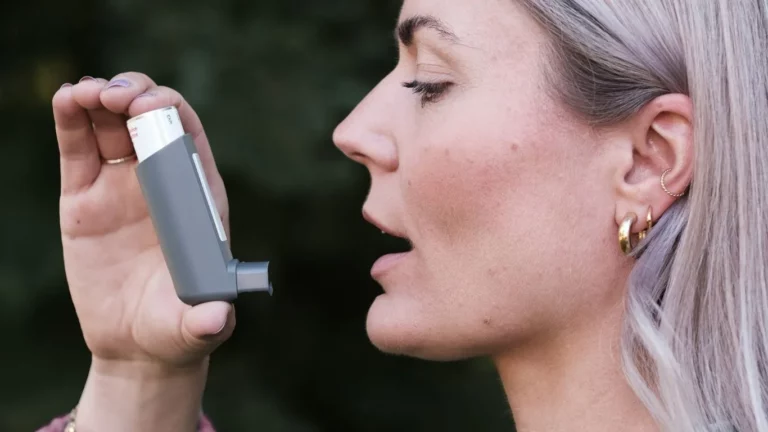Effective GERD and Mouth Dryness Relief: Proven Tips for Comfort
If you’re someone who’s struggled with GERD (Gastroesophageal Reflux Disease), you probably already know that it can cause a whole range of symptoms. Heartburn, regurgitation, and chest pain are just the tip of the iceberg. But one symptom that often flies under the radar is mouth dryness. It’s a less talked about but still very common issue for GERD sufferers. As a Medical Assistant in a Gastroenterology Clinic, I’ve seen firsthand how many people struggle with finding effective GERD and mouth dryness relief, and I know how frustrating it can be to manage both. Trust me, you’re not alone in this. In this post, we’ll dive into the connection between GERD and mouth dryness, why it happens, and practical ways to get some relief.
The Connection Between GERD and Mouth Dryness
Let’s start by breaking down how GERD and mouth dryness are linked. GERD happens when stomach acid flows back into the esophagus, irritating its lining and causing symptoms like heartburn. But did you know that this acid reflux can also affect your mouth? When acid travels upward, it doesn’t just stop at your esophagus—it can reach your throat and mouth, leading to a dry feeling that’s hard to ignore.

One reason for this mouth dryness is the decrease in saliva production. Your saliva helps wash away food particles and neutralizes acid, but with GERD, this process can be disrupted. The constant acid irritation can impair the salivary glands, leading to reduced saliva flow and, as a result, a dry mouth. It’s a cycle—GERD causes mouth dryness, and mouth dryness can make GERD symptoms worse, creating a never-ending loop of discomfort. But don’t worry; there are things you can do to break this cycle.
What Causes Mouth Dryness in GERD Sufferers?
Now, you might be wondering, “Why is my mouth so dry when my main problem is GERD?” Well, the truth is that acid reflux doesn’t just affect your stomach and esophagus. It can also mess with your mouth, especially if you have frequent episodes of acid reflux or if you’ve been dealing with GERD for a long time. Here’s a breakdown of why mouth dryness is such a common side effect:
- Acid Reflux Irritates Salivary Glands: The acid that rises up from your stomach can irritate the salivary glands in your mouth. These glands play a crucial role in producing saliva, which keeps your mouth moist. When they get damaged by frequent exposure to acid, saliva production decreases.
- Medications for GERD: Many people with GERD are prescribed medications like proton pump inhibitors (PPIs) or H2 blockers. While these drugs help control acid production, they can also have side effects, including dry mouth. These medications reduce the production of stomach acid, but they can sometimes interfere with saliva production too.
- Mouth Breathing Due to GERD: GERD symptoms, such as coughing, wheezing, or difficulty swallowing, might lead you to breathe more through your mouth, especially at night. Mouth breathing dries out your mouth, making the problem even worse.

How to Find GERD and Mouth Dryness Relief
Living with GERD and mouth dryness at the same time can be really uncomfortable. However, with a few lifestyle adjustments and treatments, you can manage both of these issues more effectively. Based on my experience working in a Gastroenterology Clinic, here are some practical tips to help you get some much-needed relief:
1. Stay Hydrated and Sip Water Frequently
One of the simplest ways to tackle mouth dryness is to make sure you’re staying hydrated. Water is your best friend when it comes to easing dry mouth, so try to keep a bottle with you throughout the day. Sip small amounts of water regularly instead of drinking large quantities all at once. This helps keep your mouth moist without overloading your stomach, which could trigger GERD symptoms.
2. Chew Sugar-Free Gum or Lozenges
Another trick to boost saliva production is chewing sugar-free gum or using sugar-free lozenges. The act of chewing stimulates the salivary glands, helping them produce more saliva to keep your mouth moist. Plus, it can help freshen your breath, which is often a concern for people with GERD.
3. Use a Humidifier
If you tend to experience mouth dryness at night, using a humidifier in your bedroom can help. The moisture in the air will prevent your mouth from becoming too dry while you sleep, helping you wake up feeling more refreshed. It’s a simple yet effective way to manage dryness while resting.

4. Adjust Your GERD Diet
Your diet plays a huge role in managing GERD, and certain foods can worsen acid reflux and contribute to mouth dryness. Spicy foods, acidic fruits, caffeine, and alcohol are some common GERD triggers that you should try to avoid. By making some dietary changes, like opting for alkaline foods (bananas, melons, and oatmeal), you may help reduce both GERD symptoms and mouth dryness.
5. Talk to Your Doctor About Medications
If you’re on GERD medications, such as proton pump inhibitors (PPIs), and are experiencing dry mouth as a side effect, talk to your doctor. They might be able to adjust your prescription or recommend an alternative treatment that won’t interfere with your saliva production as much. Sometimes, a small change in medication can make a world of difference.
In the next section, we’ll dive deeper into the importance of maintaining a healthy lifestyle to further prevent GERD flare-ups and mouth dryness. Stay tuned for more tips!
Lifestyle Tweaks That Make a Big Difference
In my time working with patients in the gastroenterology clinic, I’ve learned that sometimes it’s the little daily habits that make the biggest difference in managing GERD and mouth dryness relief. Sure, medications and doctor visits are important, but let’s not underestimate the power of routine changes. These are things I often recommend to patients—and even tried myself when I was dealing with reflux-related issues—and they’ve made a noticeable impact.

1. Elevate Your Head While Sleeping
Nighttime reflux is a beast. If you’ve ever woken up with that awful sour taste or a parched mouth, you know what I mean. One easy fix? Elevate the head of your bed by about 6-8 inches. Not just adding pillows—actually raising the bed frame or using a wedge pillow. This helps prevent acid from creeping up your esophagus while you sleep, which in turn helps reduce irritation and the dry mouth that often follows. I’ve had multiple patients come back to tell me how much this changed their sleep quality.
2. Avoid Eating Right Before Bed
This one might seem obvious, but it’s worth repeating because it’s a game-changer: try not to eat within 2–3 hours before lying down. When your stomach is full and you recline, it’s much easier for acid to travel upward. Late-night snacking, especially on spicy or greasy foods, can really intensify both reflux and mouth dryness overnight. I’ve seen people cut out this one habit and experience a huge improvement in both their GERD symptoms and dry mouth episodes.
3. Cut Back on Caffeine and Alcohol
I know—this one can be tough. Coffee and wine are two of life’s little pleasures. But both can relax the lower esophageal sphincter (that valve that’s supposed to keep stomach contents where they belong), making reflux more likely. And both are also dehydrating, which doesn’t do your dry mouth any favors. I’m not saying you have to cut them out completely (unless your doc says so), but try dialing it back and see if you notice a difference.
The Role of Oral Hygiene in Managing Mouth Dryness
When we think of GERD, we don’t always think of our oral health, but they’re actually pretty connected. A dry mouth doesn’t just feel uncomfortable—it can also lead to bad breath, tooth decay, and gum issues. As someone who’s worked closely with both gastroenterologists and dentists, I’ve seen how proper oral care can really help ease the burden of dry mouth, especially when it’s linked to GERD.

Tips for Keeping Your Mouth Fresh and Moist
- Brush and Rinse Regularly: Using a fluoride toothpaste and alcohol-free mouthwash helps keep your mouth healthy without drying it out more. Avoid mouthwashes with alcohol—they can make dryness worse.
- Try Saliva Substitutes: Over-the-counter products like artificial saliva sprays or gels can offer relief, especially at night. They’re not a cure, but they’re definitely helpful.
- Stay On Top of Dental Visits: Regular check-ups can catch any issues caused by dry mouth early on. Dentists might also recommend specific products designed for dry mouth sufferers.
Bonus Tip: Breathing Through Your Nose
This sounds simple, but mouth breathing is a major contributor to dryness, especially if you’re dealing with nasal congestion from GERD-related postnasal drip. If you find yourself breathing through your mouth at night, try nasal strips, humidifiers, or even saline sprays to help open up your nasal passages and keep that moisture in your mouth where it belongs.
Emotional Impact of Dealing with GERD and Mouth Dryness
Let’s be real for a second. Beyond the physical symptoms, dealing with GERD and chronic dry mouth can take a toll on your mental well-being too. I’ve seen patients who felt embarrassed to go out to dinner with friends, worried about needing to sip water constantly or deal with unexpected reflux. Some even started avoiding social situations altogether. That can chip away at your confidence over time.

If you’re feeling overwhelmed, know that you’re not alone—and that there are ways to manage the emotional side of this condition, too. Support groups (both online and in-person), therapy, and simply talking to someone who gets it can go a long way. One of the things I try to do in my role is just listen. Sometimes that’s the most therapeutic thing of all.
Practical Stress Management Techniques
Stress doesn’t just affect your mood—it can also worsen GERD symptoms by increasing acid production and tightening your digestive muscles. Here are some strategies my patients have found helpful:
- Mindful Eating: Slow down, chew thoroughly, and avoid distractions during meals. This not only helps digestion but also reduces reflux episodes.
- Gentle Exercise: Low-impact activities like walking, yoga, and stretching can improve digestion and reduce stress. Avoid intense workouts right after eating, though!
- Breathing Techniques: Deep breathing and meditation can help you stay centered and calm, especially when symptoms flare up.
Remember, managing GERD and mouth dryness isn’t about perfection. It’s about experimenting with what works for you, staying consistent, and knowing when to reach out for help. Up next, we’ll explore how diet plays a major role in long-term GERD control and how certain foods may either trigger or ease mouth dryness symptoms. So if you’ve been wondering what’s safe to eat (and what’s not), we’ve got you covered.
The Role of Diet in Managing GERD and Mouth Dryness
By now, you probably know that your diet can have a big impact on your GERD symptoms. But did you know that what you eat can also influence mouth dryness? When it comes to managing both conditions, understanding which foods are your friends and which ones are your foes can make a world of difference. Based on my experience working with GERD patients, dietary changes often provide immediate relief, especially when paired with lifestyle modifications. So let’s talk about the foods that can either trigger or soothe GERD symptoms and contribute to mouth dryness.

Foods That Trigger GERD and Dry Mouth
If you’ve been living with GERD for a while, you probably already have a list of foods that set you off. And unfortunately, some of these can also make mouth dryness worse. I’ve seen many patients in the clinic who unknowingly exacerbate both issues by eating certain foods. Let’s go over some common culprits:
- Citrus Fruits: While fruits like oranges and grapefruits are packed with nutrients, their high acidity can trigger acid reflux and worsen mouth dryness.
- Spicy Foods: Chili, hot sauce, and other spicy foods can irritate the stomach lining and esophagus, leading to increased acid production and reflux. They can also make your mouth feel parched.
- Tomatoes: Tomatoes are naturally acidic, which can trigger GERD flare-ups. Think about all the tomato-based dishes we love—pizza, pasta, and sauces. These are not GERD-friendly foods!
- Chocolate and Mint: As much as I love chocolate (and I’m sure you do too), it’s a known trigger for GERD. Plus, minty flavors, whether from gum or mint tea, can relax the esophageal sphincter and promote reflux, making dry mouth more likely.
- Fried and Fatty Foods: Greasy foods, like fried chicken and french fries, can slow down digestion and increase acid production, leading to GERD and dry mouth. Even though they taste great, they’re best enjoyed in moderation.
Foods That Help Reduce GERD Symptoms and Soothe Mouth Dryness
On the flip side, there are plenty of foods that can actually help manage GERD and keep mouth dryness at bay. If you’re dealing with both, here are some options to include in your diet:
- Non-Citrus Fruits: Bananas, melons, and apples are great options because they’re alkaline and soothing on the stomach. These fruits can help neutralize stomach acid and keep your mouth moist.
- Whole Grains: Oatmeal, brown rice, and whole wheat bread are all good choices for people with GERD. They absorb stomach acid and help prevent reflux, while also being easy on your mouth.
- Lean Proteins: Chicken, turkey, and fish are all gentle on the stomach and can help prevent reflux. Just be careful to avoid frying these proteins, as that can add unnecessary fat.
- Leafy Greens: Kale, spinach, and other greens are not only good for your digestive system, but they also help keep your mouth moist due to their high water content.
- Ginger: Ginger is a natural anti-inflammatory that can soothe the stomach and reduce acid production. It’s a great addition to your diet, either as fresh ginger in your smoothies or as tea.
Incorporating these foods into your daily routine can help you not only control GERD but also manage mouth dryness. You don’t have to make drastic changes overnight, but slowly swapping out triggers for these gentler foods can have a significant impact on both conditions.
Hydration and Its Role in Dry Mouth Relief
As we’ve discussed, staying hydrated is one of the easiest ways to relieve mouth dryness, but let’s dive a little deeper into why it’s so important. When your mouth is dry, it can become harder to swallow, speak, or even enjoy your meals. In some cases, a dry mouth can lead to bad breath, cavities, and other dental issues. So keeping your mouth hydrated is crucial, and the good news is that it’s simple to do.
Best Drinks for Hydration
We’ve all heard the phrase “drink more water,” and for good reason! Water is the best thing you can drink to keep your mouth moist. But there are other drinks that can also help. Let’s go over some hydration options that can both help with GERD and ease mouth dryness:
- Water: Plain water is always your best bet. It’s neutral, hydrating, and won’t trigger GERD or dry mouth.
- Herbal Teas: Non-caffeinated herbal teas, like chamomile or ginger tea, can be soothing for both GERD and mouth dryness. Just avoid mint tea, as mint can relax the lower esophageal sphincter and contribute to reflux.
- Coconut Water: This hydrating drink is rich in electrolytes and can help moisturize your mouth without causing GERD flare-ups.
- Bone Broth: A warm, soothing option that’s gentle on your stomach and helps keep your mouth hydrated. Plus, it’s full of nutrients that are great for gut health.
As tempting as it might be to reach for soda or fruit juice, these drinks are often acidic and can trigger GERD symptoms. If you do drink juice, make sure it’s non-citrus, like apple or pear juice, and consume it in moderation. Always opt for water first, and then fill in with other hydrating options that won’t worsen your dry mouth or acid reflux.
Conclusion: Take Control of Your GERD and Mouth Dryness
Managing GERD and mouth dryness can be tough, but with the right strategies, it’s absolutely possible to find relief. Remember, this isn’t about quick fixes or perfection—it’s about finding what works for you and sticking with it. From diet changes to hydration and lifestyle tweaks, there are plenty of ways to keep both conditions under control. If you ever feel stuck, don’t hesitate to reach out to your doctor or a gastroenterologist for personalized advice. You’re not alone in this journey, and there’s support out there to help you feel better. Keep experimenting with different strategies, and soon enough, you’ll find a routine that works for you.
Disclaimer: The information provided in this article is intended for educational purposes only and should not be considered medical advice. Always consult with your healthcare provider for advice specific to your situation.
For more health tips and advice, check out other articles on our website at healthusias.com.

Camellia Wulansari is a dedicated Medical Assistant at a local clinic and a passionate health writer at Healthusias.com. With years of hands-on experience in patient care and a deep interest in preventive medicine, she bridges the gap between clinical knowledge and accessible health information. Camellia specializes in writing about digestive health, chronic conditions like GERD and hypertension, respiratory issues, and autoimmune diseases, aiming to empower readers with practical, easy-to-understand insights. When she’s not assisting patients or writing, you’ll find her enjoying quiet mornings with coffee and a medical journal in hand—or jamming to her favorite metal band, Lamb of God.







